![]()
![]()
![]()
Use LEFT and RIGHT arrow keys to navigate between flashcards;
Use UP and DOWN arrow keys to flip the card;
H to show hint;
A reads text to speech;
25 Cards in this Set
- Front
- Back
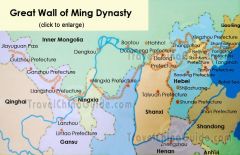
ming dynasty
|
a powerful dynasty in Asia during the 19th century.
|
|
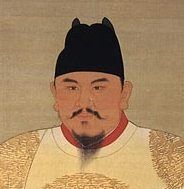
Hongwu
|
founder of the ming dynasty who revolted against the mongols and drove them out of china
|
|
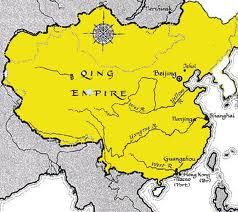
Manchu
|
the dynasty that invaded china and caused the Ming dynasty to collapse.
|
|
|
qing dynasty
|
the last imperial dynasty of China (from 1644 to 1912) which was overthrown by revolutionaries; during the Qing dynasty China was ruled by the Manchu
|
|
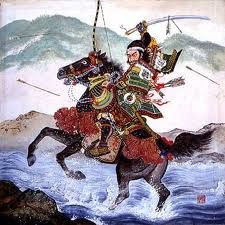
daimyo
|
A Japanese feudal lord who commanded a private army of samurai; warlord.
|
|
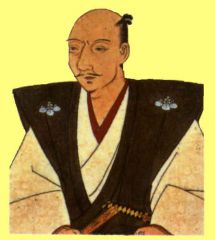
Oda Nobunaga
|
defeated his rival daimyos to control the capital, eliminated his remaining enemies, but did not unify Japan; committed suicide when a general turned on him
|
|
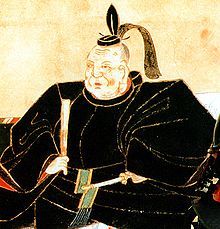
Toyotomi Hideoyoshi
|
He was the second of the three great unifiers. This ruler was a farmers son who became a military commander. Eventually, he was able to persuade almost all of the daimyo to respect his authority. He was not tolerant of the European foreign traders and Christian Missionaries and launched an anti-foreign, anti-Christian policy.
|
|
|
Tokugawa
|
A Japanese daimyo who was able to unite all of Japan under his rule. He became the shogun and was able to set up a dynasty that would rule Japan for 200 years.
|
|
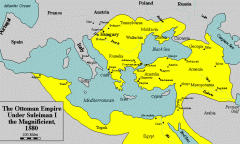
Ottoman Empire
|
A small state between the Arabic Middle East and the Byzantine Empire.
|
|
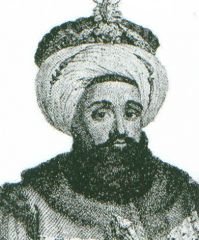
Sultan
|
the ruler of a Muslim country (especially of the former Ottoman Empire)
|
|
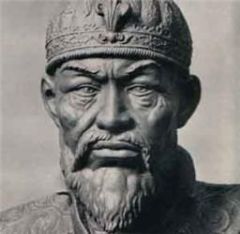
Timur the Lame
|
interrupted the Ottomans in early 1400's, invaded Hungary, defeat the Venetians and Italian Crusades. Believed he was a descendent of Genghis Khan.
|
|
|
Mehmed II
|
also called Mehmed the conqueror, he conquered Constantinople in 1453 and opened it to new citizens of many religions and backgrounds. the rebuilt city was renamed Instanbul.
|
|
|
Sulleyman the Lawgiver
|
aka Suleyman the Magnificent; great military leader, created code of law, simplified system of taxation, reduced government bureaucracy
|
|
|
mughal empire
|
a period of Muslim rule of India from the 1500s to the 1700s
|
|
|
Babur
|
founder of Mughal dynasty in India; descended from Turkic warriors; first led invasion of India in 1526; died in 1530.
|
|
|
Akbar
|
Most illustrious sultan of the Mughal Empire in India (r. 1556-1605). He expanded the empire and pursued a policy of conciliation with Hindus.
|
|
|
Sikh
|
nonviolent religious group whose beliefs blend elements of Buddhism, Hinduism, and Sufism
|
|
|
Shah Jahan
|
Fifth Mogul emperor of India; He is remembered as the creator of the Taj Mahal
|
|
|
Taj Mahal
|
A beautiful tomb built by the Mughal ruler Shah Jahan to honor his wife.
|
|
|
Aurangzeb
|
Mughal emperor in India and great-grandson of Akbar 'the Great', under whom the empire reached its greatest extent, only to collapse after his death
|
|
|
Voltaire
|
French philosopher and writer whose works epitomize the Age of Enlightenment, often attacking injustice and intolerance.
|
|
|
Lavoisier
|
"father of modern chemistry"
|
|
|
Hobbes
|
English materialist and political philosopher who advocated absolute sovereignty as the only kind of government that could resolve problems caused by the selfishness of human beings (1588-1679), wrote Leviathan
|
|
|
Delacroix
|
This French painter was important to French Romantic art. He often used his painting to convey a political message, and he is best known for his painting depicting the socialist revolution of 1830: Liberty Leading the People.
|
|
|
Locke
|
Wrote Two Treatises of Government. Said human nature lived free and had the natural rights of life, liberty, and property. He said government was created in order to protect these rights and if the government failed to do so it was the duty of the people to rebel.
|

